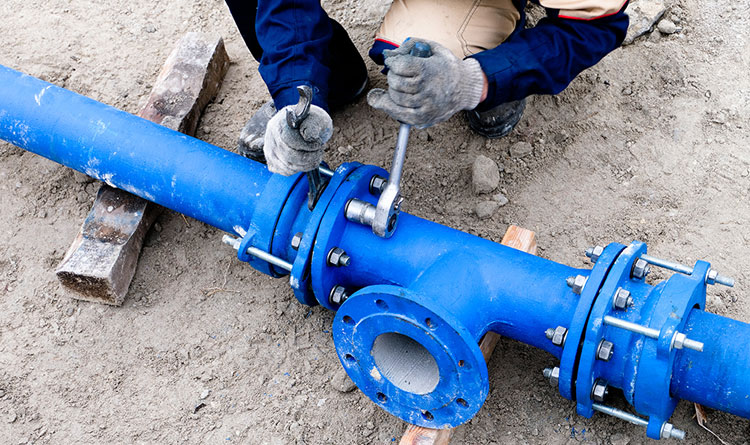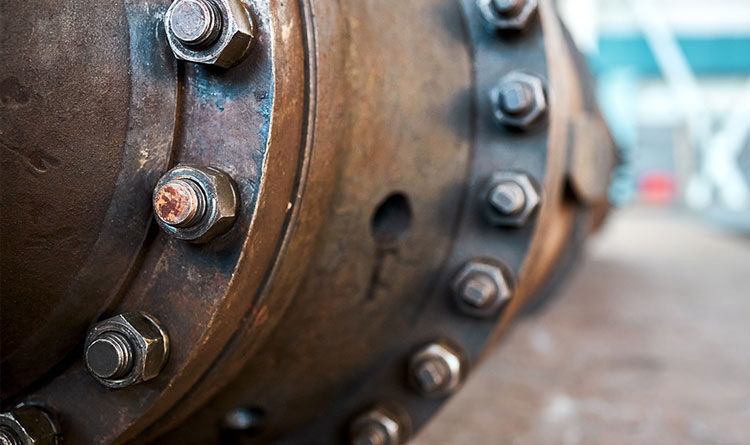Pipe-101: Flanges & Flange Facing
Flange Facing Techniques and Applications
In the world of heavy industrial plants and field machining, where power plants, oil refineries, nuclear facilities, and pulp plants thrive, the intricate network of piping systems forms the backbone of operations. At the heart of these systems lie pipe flanges, essential components that enable secure connections and facilitate fluid or gas transport. This article delves into the nuances of flange facing, its significance, applications, and how Tri Tool Technologies' Field Services can revolutionize industrial operations.Understanding Pipe Flanges
A pipe flange is a disc-like structure with a flat, ribbed, or raised edge that is attached to the end of a pipe, allowing for easy assembly and disassembly of various components in a piping system. These components are widely used across heavy industries for several reasons.
A pipe flange connects piping and components of a piping system by the use of bolted connections and gaskets. The most common flanges are weld neck flange, slip on flange, blind flange, socket weld flange, threaded flange and lap joint flange (RTJ Flange). View other types of flanges.
Advantages of Pipe Flanges
Connectivity: Flanges provide a robust connection between pipes, valves, pumps, and other equipment, ensuring a secure and leak-free assembly.
Versatility: They accommodate a range of pipe sizes and materials, enabling flexibility in designing and adapting piping systems to specific needs.
Maintenance: Flanges simplify maintenance and repairs. They allow for easy removal of sections without dismantling the entire pipeline, minimizing downtime.
Pressure Resistance: Flanges distribute pressure evenly, reducing stress concentration and enhancing the overall integrity of the system.
Sealing: Properly seated gaskets within flanges create effective seals, preventing leakage of fluids or gases and enhancing safety.
Disadvantages of Pipe Flanges
Complexity: Flanged connections can be intricate to install and require skilled technicians to ensure accurate alignment and sealing.
Space and Weight: The addition of flanges increases the overall weight and size of the system, which might be a concern in tight spaces or when dealing with weight restrictions.
Potential Leakage: While flanges are designed to prevent leakage, poor installation, improper gasket selection, or degradation over time can lead to leaks.

Flange Facing: An Imperative Process
Flange facing emerges as a critical procedure to mitigate some of the challenges posed by pipe flanges. In heavy industrial sectors, where efficiency, safety, and environmental responsibility are paramount, the process of machining the mating surfaces of flanges takes on paramount significance.
Applications of Flange Facing
Re-facing or Repairing Valve Flange Heat Exchangers: Achieving a perfect seal in heat exchangers is vital for efficient heat transfer and energy conservation.
Re-facing Ship Hatch Sealing Surfaces: The maritime industry relies on secure hatch seals to protect cargo from the elements. Flange facing ensures watertight integrity.
Boiler Feed Pump Flanges: Flange facing guarantees leak-free connections in boiler feed pumps, minimizing the risk of steam leaks and accidents.
Repairing Piston Rod Mating Flanges: Flange facing restores proper alignment and sealing, contributing to smooth mechanical operations.
Re-machining the Gasket Seal on Tube Sheets: In heat exchangers, a perfectly machined gasket seal on tube sheets optimizes heat exchange efficiency.
Resurfacing Large Pump Base Housings: Flange facing restores flatness and alignment, reducing maintenance costs and extending pump life.
Re-facing of Pipeline or Pipe Flanges: Pipeline integrity hinges on proper flange connections. Flange facing ensures leak-free operation, minimizing environmental risks.
For today's plants and industrial faciilties, proper flange fittings and the role of flange facing in enhancing operational efficiency, safety, and sustainability cannot be overstated. Whether it's ensuring heat exchanger integrity or maintaining pipeline reliability, flange facing plays a pivotal role.

Need support with repairing your facility's flanges or piping system?
Tri Tool's Field Services can help.
When it comes to heavy industrial piping, precision is paramount. Tri Tool's Field Services team are the experts in flange facing and piping repairs. Our team of experienced technicians possesses the skillset to handle diverse flange facing applications. From valve repair to complex vessel weld prep, our services are tailored to ensure optimal results. Our Field Services can significantly reduce downtime, therefore our services pay for themselves and we feature competitive pricing and anytime rates, so you don't have to pay extra for emergency repairs.
Contact Tri Tool Field Services
For those seeking to elevate their industrial operations through precision flange facing, the experts at Tri Tool Technologies are ready to partner with you. Contact us today or call (888) 305-1337 to explore how our Field Services can ensure leak-free, efficient, and safe operations, while reducing downtime and saving serious costs.
What's your next mission?
Our staff and engineers are on the ready. Let Tri Tool get to work.
